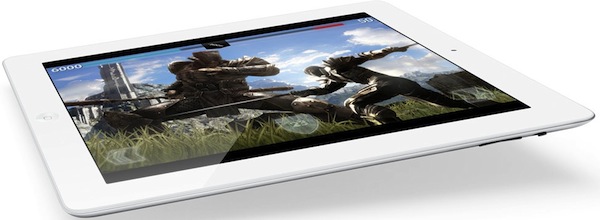Microsoft and Google won’t have a price advantage with iPad, so they’ll have to actually make a better product

Last week Microsoft kinda-sorta announced its new Surface tablet computer. This week will come a Google-branded tablet. Both are pitted against the mighty iPad. Both companies see opportunity because of what they perceive as a Steve Jobs blind spot. And both companies are introducing tablets under their own brands because they can’t get their OEM’s to do tablets correctly.
For all the speculation about why Microsoft or Google would risk offending hardware OEMs by introducing name branded tablets, the reality is that neither company really had any choice but to make the hardware. In the commodity PC market, no one company is likely to be willing to make the investment necessary to compete with the highly-integrated iPad. Samsung tried, and even then it didn’t pay off for them. Taiwan Inc + Dell just don’t seem to run that way. Furthermore, it is a lot easier to make a product when you control the operating system. You have the experts right there. You don’t have to go through support channels to fix stuff. So ultimately, Microsoft and Google should be able to make much better products than their licensees.
If their OEMs want to compete, really compete, let them spend the extra money required or stop complaining.
Move Over, iPad
Both Microsoft and Google can compete at around the same price as Apple (for the WindowsRT and Android versions) but no less. Microsoft’s Windows 8 version will cost more due to the Intel tax and the Windows license tax. Both Microsoft and Google will likely use Tegra as the System On Chip (SOC) since it is the fastest out there and closest to the A5X. All the other components are available. Apple can cause component supply problems for Microsoft, and possibly some component pricing issues as a result. But Microsoft and Google will just swallow these extra costs in the beginning to remain price-competitive.
The real question is software. iPads suck for productivity apps like Office. This is of course by design, because Jobs did not value the enterprise market (that’s the blind spot). Both Microsoft and Google tablets will be aimed squarely at that spot, with the Microsoft tablet being essentially an Office/Exchange machine and the Google tablet dedicated to Google Apps.
Email is okay on the iPad, but full Outlook compatibility is still missing (contacts, calendaring still seem to miss from time to time). So Microsoft can win with the executive & enterprise audience, although I have to assume that Apple is going to provide a major revamp of iWork one of these days, plus an integrated iPad/Macbook Air type of productivity product.
Ironically, IT departments will be attracted to the Microsoft tablet, especially, because it won’t be as locked-down as the iPad -- a complete reversal of policy.
Target: Enterprise
Today, PCs basically beat Apple on price but not much else. Most people and companies buy PCs despite their inferiority in every respect then try to defend their decision on the grounds of personal preference or corporate policy. Microsoft and Google won’t have a price advantage with tablets, so they’ll have to actually make a better product, or win on corporate policy which is getting harder to do. That’s why succeeding in tablets is important for both companies but absolutely vital for Microsoft.
Microsoft has a chance in this space if the embedded/xBox team are given the tools to do it right. But my bet is that they won’t break through to the knuckleheads on the Office and Windows teams who desperately want to protect their margins and still struggle with usability.
Google is the dark horse here. Their tablet will presumably come from Motorola Mobility and will run Google Apps like crazy. But Google, like Microsoft, doesn’t have a reputation for quality that’s required to compete in this space. Editor's Note: All indications are ASUS as manufacturer for Nexus tablet.
With Jobs gone and Apple finally allowed to take some cues from the marketplace, what these two tablets may do most of all is awaken a sleeping giant, filling him with terrible resolve.
Fortunately that can only be good for consumers.
Reprinted with permission.
